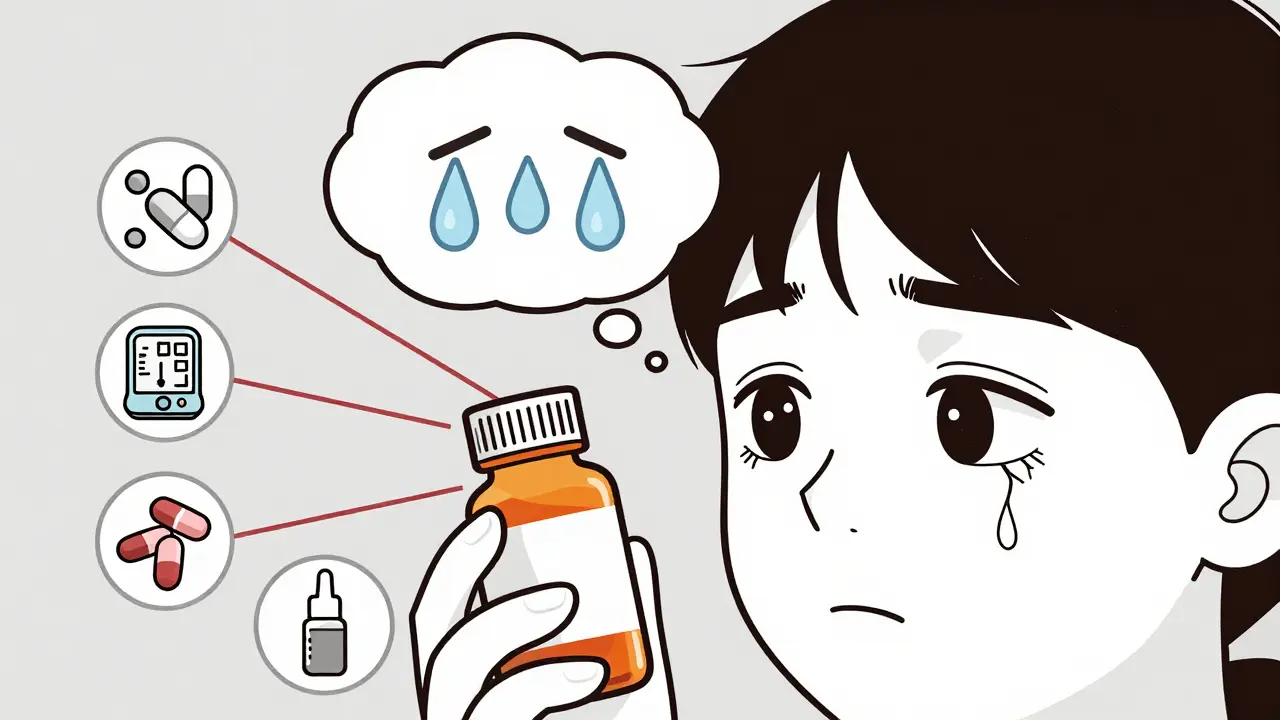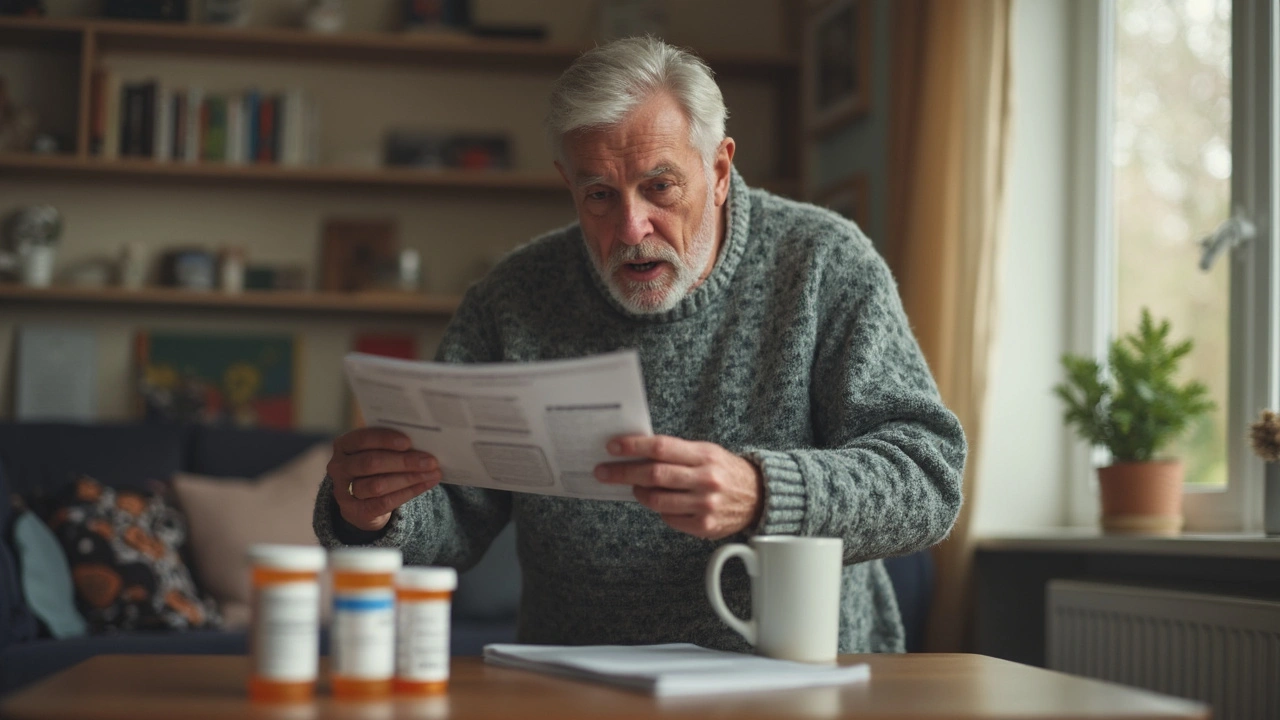Medication side effects: what to expect and how to stay safe
Side effects are unwanted reactions you can get from any drug, from mild nausea to serious allergic reactions. Knowing the likely side effects for medications you take helps you spot trouble early and talk with your prescriber. I'll walk you through how to read labels, reduce risk, and decide when to get urgent care.
Start by reading the patient information leaflet or the online drug monograph before you start a medicine. Pay attention to common side effects, serious warnings, and the timeframe when side effects usually appear. If a leaflet lists dizziness, upset stomach, or sleep changes as common effects, expect them and plan for them—don't panic. If you see warning signs like shortness of breath, swelling of the face, severe rash, high fever, or fainting, stop the medication and seek emergency help.
Drug interactions cause many avoidable side effects. Tell every clinician and pharmacist what you take: prescription medicines, over-the-counter drugs, vitamins, herbs, and recreational drugs. Use one trusted medication list and update it whenever things change. Pharmacies and many clinic portals can run interaction checks for you; take advantage of that service.
Start new medications at the lowest recommended dose when possible, and avoid mixing alcohol with drugs unless your doctor says it's safe. For some medicines, splitting doses or taking them with food lowers stomach upset. For others, timing is key—take at night if they cause drowsiness or in the morning if they raise heart rate.
Managing mild side effects at home
For mild nausea, try ginger, small meals, and sipping water. If constipation shows up, increase fiber, water, and gentle movement. Simple headaches often respond to rest, hydration, and over-the-counter pain relievers—check for interactions first. Keep a symptom diary for the first two weeks so you can see whether side effects fade or worsen. If they fade, your body may be adjusting; if they get worse or interfere with daily life, call your prescriber.
When to contact a professional
Contact your doctor if side effects reduce your ability to work, sleep, or keep food down. Call right away for alarming signs like breathing trouble, chest pain, sudden weakness, jaundice (yellow skin or eyes), or severe mental changes. If you can't reach your regular provider, go to urgent care or the emergency room. For non-urgent questions, your pharmacist can often guide dose changes or minor management tips.
If you buy medications online, use licensed pharmacies and keep receipts and batch numbers. Fake or poor-quality drugs can increase risk of side effects. Report serious side effects to your healthcare team and your country's safety agency—this helps protect other patients. Remember, side effects don't always mean a drug must stop; sometimes a small dose change or switching to another medicine fixes the problem. Talk openly with your provider and keep a clear list of what you take so both of you can make safer choices. Keep emergency numbers handy and review medicines every six months with your provider.



